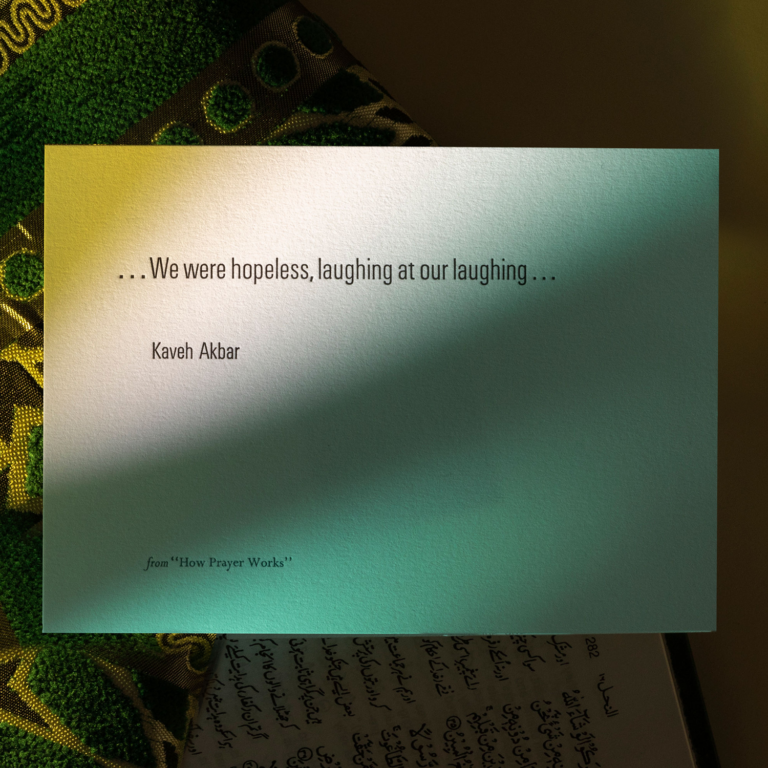The Spirituality of the Ordinary Is Luminous
I might be an experience junkie. I love the extra-ordinary. I love the extraordinary beauty of cities like Istanbul, Paris, Esfahan, and Kyoto.
Love the extraordinary beauty of places like Florida beaches, North Carolina hills, the Rockies, Utah, Lake Tahoe, Vancouver Island. Love the extraordinary sound of Mahalia Jackson, Orüç Güvenç, Nusrat Fateh Ali Khan, and Coltrane. (OK, and Hamilton.) Love the sensuality of the beloved in soft sheets, rose petals, and candles. Love the extraordinary high that comes with an intense session of chanting, prayer in an Ottoman mosque or repetition of God’s names (dhikr).
It is easy to love the extraordinary. It is easy to pursue a spiritual path that is about the sensory overload of the extraordinary. It is easy to fall in love with spiritual practices that lead one to transcendence and ecstasy. It is easy to soar. It is easy to seek the “high.”
And there is something lovely about experiencing the extraordinary, to remember that we have spiritual faculties in us open to the realms beyond.
But what does that say about the ordinary? Where does that leave the everyday? How do we experience the ground? The far less dramatic, the unsexy, the “boring” words like discipline, ritual, community — these are where the ideals of our spiritual path meet the reality of our daily lives.
Let us love the ordinary. Let us love the closeness of God and the sacred, here and now.
Let us cherish the everyday, the every breath, the where we are.
This is the wisdom of Rabbi Abraham Joshua Heschel, among so many others, who said:
“It takes three things
to attain a sense of significant being:
God,
A Soul,
and a Moment.And the three
are always here.”
God. Soul. A Moment. God is always there.
We live breath by breath. We are always in the moment, even if we are not always fully inhabiting the moment.
And there is always a heart. God is always there. We are sometimes absent from our own heart.
Heschel would go on to say:
“Wonder or radical amazement
is the chief characteristic
of the religious man’s attitude
toward history and nature.”
Wonder. Awe. Radical Amazement. How I love these qualities.
Awe is such a quintessentially marvelous quality of living an enchanted life. Awe, like love, is not even an emotion. It is, above all, a way of being in the world. It is a way of being with God, soulfully.
We used to have a sense of this word in English. We would speak of having an “awesome” experience. We could even speak of having an “awful” experience. “Awful” did not mean terrible. “Awful” did not mean bad. “Awful” meant something that would fill you with a sense of awe.
Heschel came back to the centrality of this sense of awe, wonder, and radical amazement again and again:
“The surest way to suppress our ability
to understand the meaning of God
and the importance of worship
is to take things for granted.”
This model of spirituality of the ordinary begins by not taking things for granted. We see the patterns in life, in nature, in events, in our own emotions, but we also recognize that each moment, each breath, each guest of the heart is unique. The “ordinary” is already luminous.
God and the sacred, the enchanted and the luminous, are not “over there” somewhere. They are all right here, where we are.
May we get back to the ordinary, the breath by breath, and the living in each moment fully. Inhabiting each moment and seeking the wonder therein. The refusal to let life descend down to a cycle of the mundane, the insistence of seeking awe in the ordinary — this is the beginning of spiritual life. Heschel again:
“Indifference to the sublime wonder of living is the root of sin.”
Sin, for Heschel, is ultimately not about eating this or not eating that, praying in this temple or that temple, but a losing of that sublime wonder of being truly alive. That is the ultimate sin, the only sin. Yes, there are religious commandments to observe. But the goal of religion remains to cultivate that sense of wonder, awe, and radical amazement.
This is the wisdom that the Muslim sages point us to as well. The great ‘Attar states:
“Every breath
each breath
of your life
is a precious jewel.”
How lovely to live like this, to cherish the precious jewel in each breath.
So, friends, let’s you and me live in this awe. Let us celebrate the ordinary, and locate the immanence of the sacred here. And now.
Let us seek the beauty in the every-breath moments. Let us live an “awesome” life, in each breath. May we have an “awful” life, a life filled awe, in the most ordinary of moments.
Have a beautiful ordinary life. May you live in awe. May it be filled with wonder. May it overflow with radical amazement. May we have an awesome life.


Share your reflection